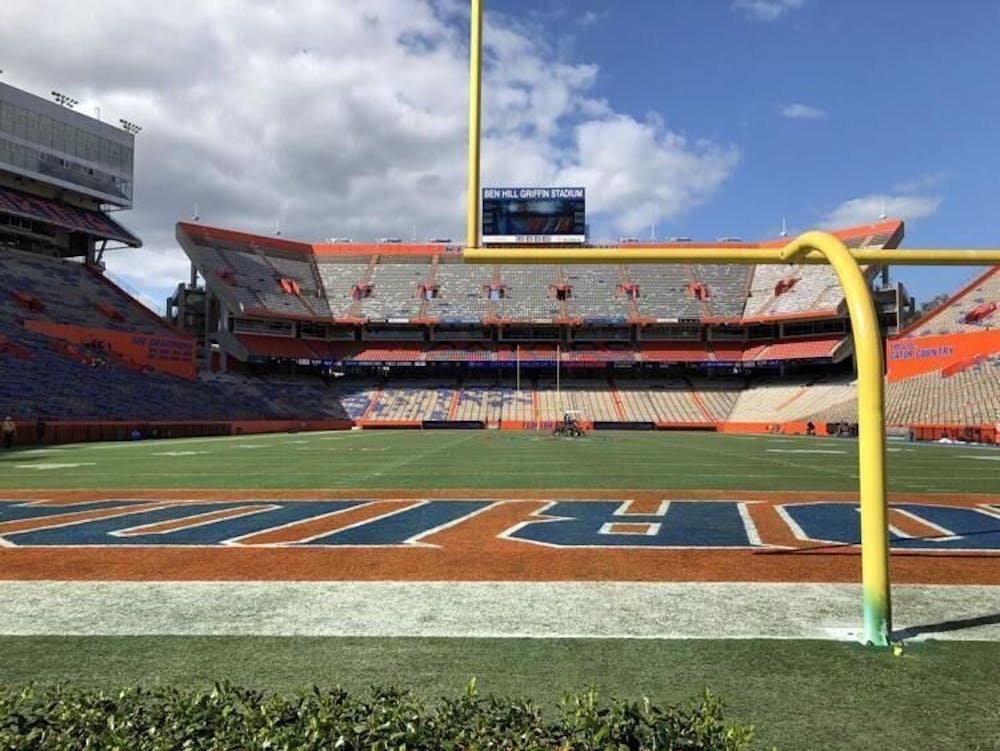Conversations about mental health became increasingly important during the COVID-19 pandemic, and many athletes admitted their inner struggles over the last two months.
Like Japanese tennis star Naomi Osaka withdrew from the French Open this summer, citing concerns about her mental health. U.S. gymnast Simone Biles pulled out of almost every remaining event she was listed to compete in at the Tokyo Olympics after she said she suffered from the “twisties,” a phenomenon that gymnasts and divers dread when they become disoriented in the air. NBA stars Kevin Love and DeMar DeRozan went public to share their stories of grappling with anxiety and depression.
The Florida Gators football team and coaching staff aren’t invincible to mental health issues, either. Head coach Dan Mullen and linebackers coach Christian Robinson spoke about mental health this week.
Robinson, as well as most of the other coaches, noticed the impact mental health has on the Gators firsthand. Robinson pointed out redshirt senior linebacker Lacedrick Brunson, who opted out of the 2020 season due to personal reasons.
“We have people that help us just through the medical side of what we do and the doctors and things like that to help our athletes in all areas that are health and mental health,” he said on Tuesday, according to the Gainesville Sun. “I know I can speak for myself. A lot of what I try to do is sit down and talk about what the end goal is…. And with everything that’s going on in our world, with health, it adds stress.
“And I know that, as coaches, we’re supposed to be there, we’re supposed to push our players, but a good coach has to pull back and say, ‘OK, where’s this player at and where does he need to go and what does he need?’ And that might not always be telling him, ‘Hey, you’ve got to correct this, you’ve got to do that.’ Hey it’s, ‘You’re OK as you are’ and ‘I can help you in those other areas.’”
Robinson added that Brunson has a son who gives him a higher purpose than a lot of other members on the team. Even though he doesn’t have kids, he said he feels like he has 10 of them with his players.
“We sit down,” Robinson said. “We meet regularly. Coach Mullen has us meet with the players individually regularly to check in and put all football aside. And we’ve really been doing things as a team as well, where we’re breaking up and talking about the experiences that we have.”
Defensive line coach David Turner echoed the sentiment Wednesday, saying he’s not a therapist but will always be someone his players can lean on.
“They know they can come to me,” he said. “You know if they got problems and things ain’t going good and I can’t help them, I’ll find somebody who can.”
Mullen reiterated Thursday that the Florida program is a family and attempts to serve as a strong support system.
“The biggest thing I tell our guys, the hardest problem for me to fix is one that I don’t know exists,” he said. “So if I don’t know a problem exists, it’s really hard for me to fix. So we just have a constant open communication. Start every staff meeting with player issues, what have you noticed, you know, does anybody have a faraway look in their eye, anybody sad about something.”
At the end of the day, though, Mullen, Turner and Robinson’s ultimate goal as coaches is to ensure their players become better and healthier people as well as better players.
Contact Zachary Huber at zhuber@alligator.org. Follow him on Twitter @zacharyahuber.






